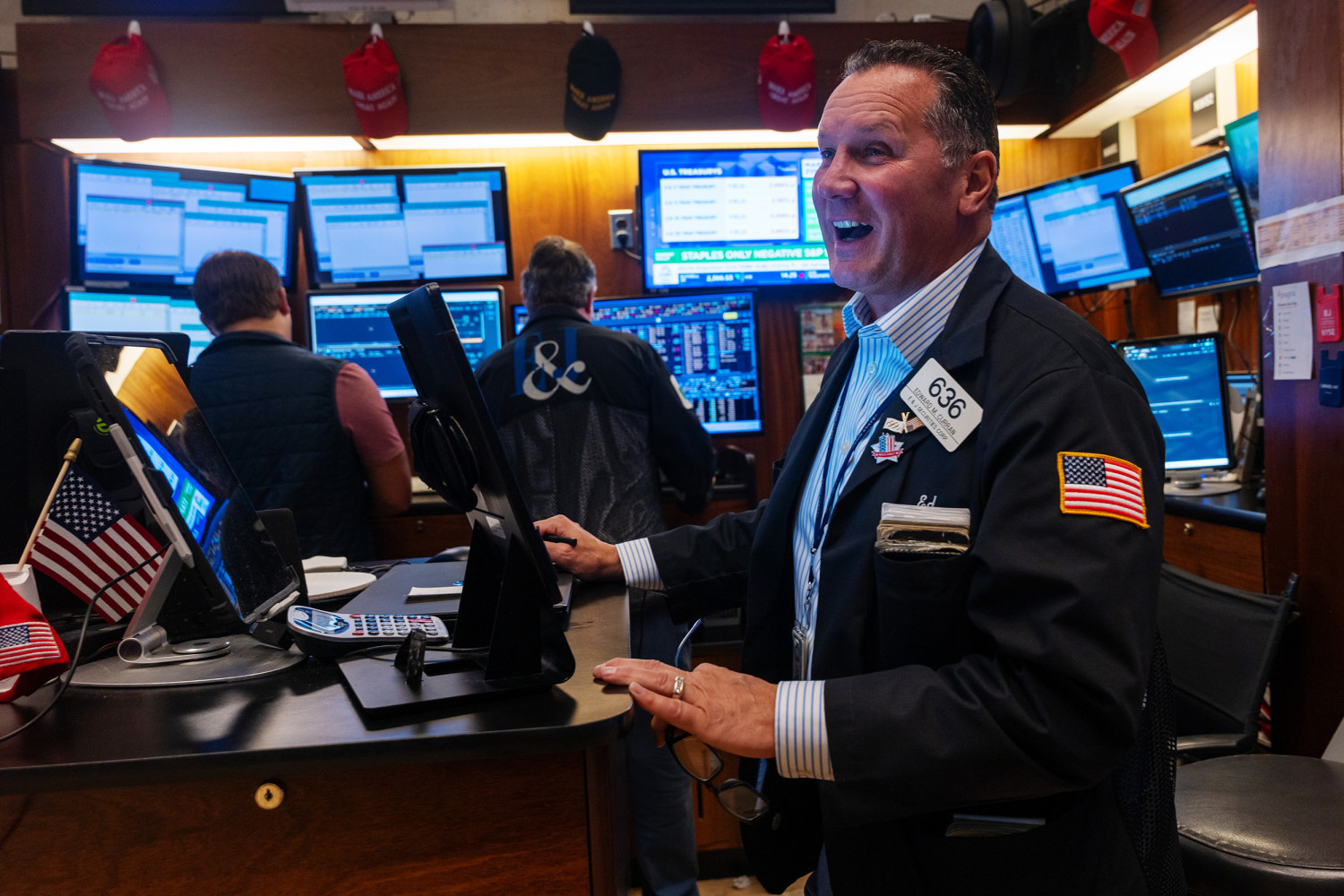Target Corporation has revealed a major executive shift, selecting a new CEO as it seeks to boost sales and reshape its standing in the competitive retail sector. This decision arises in response to increasing pressure from shareholders and industry experts who have observed stagnant growth and evolving consumer trends in recent times. The choice underscores Target’s dedication to strategic revitalization and enduring stability.
The major retailer is navigating a difficult landscape where rapidly changing consumer demands are evident. The rise of online purchases, services prioritizing convenience, and shoppers who are sensitive to prices have pushed conventional retailers to rethink their strategies. Target’s latest results have underscored the necessity for fresh leadership to guide the company through these developments and regain trust from investors. The incoming CEO is anticipated to offer a blend of experience, innovation, and operational skills to this position.
The appointment follows a period of introspection at Target. The company has seen a mix of successes and setbacks across its physical stores and e-commerce operations. While it remains one of the most recognizable brands in the United States, competition from other big-box stores, digital-first retailers, and niche brands has intensified. The leadership change signals a renewed focus on enhancing customer experience and increasing market share.
Investors have reacted positively to the news, viewing it as a possible pivotal moment for the organization. Target’s shares have shown variability recently because of overall economic trends and consumer purchasing behavior. By appointing a CEO with proven success, the company intends to stabilize its progress and implement projects that can enhance earnings. Experts anticipate that distinct strategic goals will be determined shortly, concentrating on immediate outcomes and the brand’s long-term market standing.
The new CEO inherits several critical challenges. One of the primary areas of focus is improving same-store sales, which have shown signs of slowing. Shoppers today are more selective, often comparing prices across multiple platforms before making a purchase. Target’s leadership will need to identify ways to differentiate its offerings, whether through exclusive products, improved pricing strategies, or enhanced in-store experiences that draw customers back.
Digital transformation will remain a top priority. The retail environment has been altered significantly due to the swift increase in online shopping and mobile commerce. Target has allocated substantial resources towards enhancing its digital infrastructure recently, but the incoming CEO must weave these efforts into a unified strategy. It is essential to optimize stock management, enhance supply chain efficiency, and ensure smooth transitions between online and offline experiences to stay competitive in a market progressively driven by technology.
Beyond sales and operations, the way people perceive Target’s brand significantly influences its growth path. The company has built a reputation for offering affordable and quality products, but shifts in demographics and consumer preferences necessitate ongoing adaptation. Initiatives focusing on sustainability, community involvement, and inclusive marketing are now vital parts of contemporary retail strategies. The new leadership team is anticipated to support these values while seeking additional ways to sustain brand relevance.
Employee involvement and staff supervision are among the primary challenges. Target hires a vast number of personnel in its retail locations, logistics hubs, and administrative headquarters. Maintaining strong morale, implementing effective training initiatives, and ensuring clear communication are vital for executing strategic changes. Leadership capable of motivating and directing employees through changes will be a key element in attaining operational efficiency.
Target’s competitive landscape adds further complexity to the CEO’s role. Rivals such as Walmart, Amazon, and Costco continue to innovate, forcing Target to refine its own strategies. Differentiation may come from exclusive product lines, loyalty programs, or improved customer service. The new CEO will need to leverage data analytics and market research to anticipate consumer needs and respond more quickly than competitors.
Financial strategy is another area of focus. Maintaining profitability while investing in growth initiatives requires careful planning. Capital allocation decisions, including investments in store renovations, technology upgrades, and marketing campaigns, will need to be balanced against shareholder expectations for returns. The CEO will likely prioritize initiatives that provide measurable impact while positioning the company for sustainable growth over time.
Target’s recent initiatives in same-day delivery, curbside pickup, and online shopping tools have been significant moves in adjusting to shifts in consumer habits. Nevertheless, the organization encounters the difficulty of expanding these offerings effectively while preserving quality. The incoming management team must evaluate operational efficiency, recognize obstacles, and put strategies in place that enhance services without compromising profitability.
The wider retail sector continues to be affected by economic elements like inflation, interest rates, and consumer confidence. Target’s capacity to manage these macroeconomic challenges will rely on strategic flexibility and effective operations. The incoming CEO will have to make prompt choices about pricing, marketing strategies, and stock levels to stay competitive while ensuring profitability.
Customer commitment will be essential for future achievements. Target has put resources into initiatives like its rewards platform and unique brand collaborations to boost recurring sales. Enhancing these measures while seeking new ways of interaction can enhance long-term customer worth and strengthen ties with intended audiences. The management team is expected to work on perfecting these schemes to amplify their effect.
Sustainability and corporate responsibility are becoming more crucial in the retail sector. Shoppers are more mindful of environmental and social practices when deciding on where to make purchases. Target has pledged to cut down carbon emissions, increase the range of sustainable products, and aid local communities. The incoming CEO is anticipated to strengthen these efforts, integrating them with wider business goals to improve both reputation and long-term market position.
Creativity in retail and product strategies will be key in Target’s attempts to rejuvenate its brand. Spotting trends, obtaining popular products, and developing unique offerings are crucial for drawing in consumers. The CEO must nurture an innovative atmosphere within the merchandising department to keep the company appealing and prominent in a competitive market.
Estrategies related to marketing and communications will play a crucial role. Developing campaigns that connect with consumers by focusing on value, quality, and ease will be essential for regaining momentum. Transparent communication about Target’s aims and services, together with marketing efforts informed by data, can aid in boosting traffic both on the web and in physical locations.
Looking ahead, analysts expect that the leadership change could serve as a catalyst for transformation. While challenges remain, including competition, operational complexity, and economic pressures, a fresh perspective at the top provides an opportunity to set a bold agenda. The focus will likely be on long-term growth, digital expansion, and strengthening customer relationships across all channels.
Target’s capacity to rejuvenate sales hinges on synchronized efforts across various areas. Clear strategy, efficient operations, brand creativity, workforce commitment, and digital evolution must harmoniously align. The newly appointed CEO has a crucial responsibility: finding the equilibrium between achieving short-term outcomes and making essential investments to ensure Target’s leadership in contemporary retail for the future.
By appointing new leadership, Target signals both urgency and ambition. The company recognizes that sustaining growth requires proactive management, creative solutions, and a deep understanding of changing consumer behavior. If executed successfully, this leadership transition could mark a turning point in Target’s trajectory, restoring confidence among investors, employees, and customers alike.
The retail industry will be observing with keen interest. Rivals, experts, and shoppers will scrutinize if Target’s fresh management can achieve substantial outcomes and steer through the hurdles of a swiftly changing market. The risks are substantial, yet the potential gain is just as important: reinforcing Target’s position as a key figure in U.S. retail while preparing for enduring expansion ahead.



